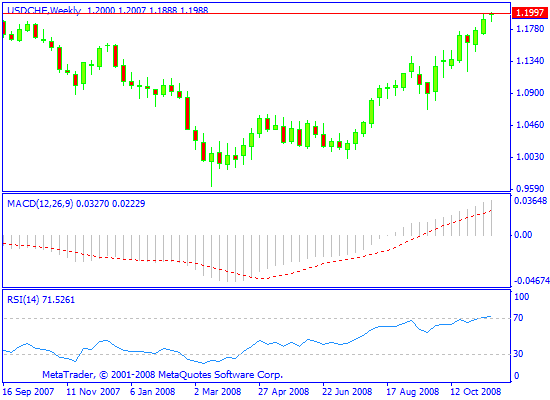ETF Trading For Beginners
Post on: 29 Март, 2015 No Comment

You’re a Rookie ETF Investor if you’re a beginner and exchange-traded funds are relatively new to you. You may have little or no direct participation in the financial markets. (If you do have some experience, maybe you started with a “buy and hold” approach using stocks or got your feet wet by investing in mutual funds.) Maybe you’re transitioning from a full-service brokerage or employer-sponsored retirement plan to a do-it-yourself online broker like TradeKing. Your investing objectives may run the spectrum from conservative to aggressive, but it’s likely you don’t grasp the full meaning and implications of these viewpoints.
Just because you’re a rookie doesn’t mean you don’t have high expectations for your investments, and you’re probably eager to expand your general market knowledge and investment experience to achieve your goals. That said, many beginners aren’t fully aware of the time and dedication involved with investing. As a rookie, you may have heard about asset allocation and retirement planning, but don’t really understand how those processes work (or why they’re each so important to think through). Rookies often hear about ETFs through news programs, financial magazines, or friends. You may want to dig a little deeper, but you may find the financial markets overwhelming and not know how to begin.
On the trading side of things, a rookie may be lured into trading an ETF because the sector it tracks is in favor or is experiencing increased volatility. However, you may not realize the higher the volatility, the higher the skill set needed to manage such positions. Rookies may not grasp the concept of liquidity and how its importance increases as a trader’s holding period decreases.
Rookies are especially vulnerable to letting emotion take over once a trade or investment has begun. This may lead to you holding onto ETFs with losses even as the reasons for the original investment have deteriorated. You may’ve found yourself hoping, maybe even wrongly expecting, a losing ETF would recover so you can “get back to even”. If higher prices return, you may’ve pulled the sell trigger too soon, selling your ETF at break-even or with only small profits. Rookies often have had successful positions during strong bull markets, but during tougher times when volatility is up and bears rule the game, you may feel at a loss.
As an ETF rookie, you realize ETFs represent a basket of investments, but you likely don’t know what assets are held by the fund manager nor realize not knowing these details can wreak havoc on your investment. Rookies may erroneously think fees for ETFs are always lower than those of mutual funds and don’t know to look closely at commissions and expense ratios. It can be daunting to compare mutual funds and ETFs in a comprehensive manner to determine which type of investment is better suited in certain conditions. Rookies may not be aware that ETFs can go up and down in value or that your shares can become worth more or less than their original cost. The unique risks of specialized or non-traditional ETFs aren’t always apparent, either. It’s tempting to be attracted to an ETF for its successful track record, but a bit more challenging to interpret those figures and recognize that past performance is not an indication of the future.
As a Rookie ETF Investor, here are the fundamentals you should master:
- The basics of ETFs. their fees and expenses, and how ETFs can impact your taxes
- How to obtain an ETF’s prospectus, either by mail or online, and understand it
- The meaning of an ETF’s stated average annual returns
- How to obtain and read basic quotes using a ticker symbol (bid, ask, size, last, change, high, low, open, close and volume)
- The concept of dollar cost averaging, its risks and costs, and if it’s right for you
- How T+3 settlement affects ETF transactions
- Order entry terminology (action of buy or sell, quantity, price, type of order, duration)
- Position terminology (long, short)
- Keep tabs on the major market indices (S&P 500, DJIA, Nasdaq composite, Nasdaq 100, Russell 2000, etc.)
- The difference between an ETF and an index
- How to regard your gains or losses as real, even if they are still unrealized
- What basic SIPC insurance is (and why it matters)
Rookie ETF Investors can improve their skills by:
- Finding investment opportunities with TradeKing’s ETF Screener
- Reviewing ETF strategies geared to the rookie skill level
- Reviewing the basics of investing in stocks and bonds
- Using limit orders for nearly all trades
- Understanding if and how dividends are distributed for a particular ETF
- Understanding how commissions and fees impact your bottom line
- Anticipating and planning for all possible outcomes for your trades, not just the positive scenarios
- Engaging members of the Trader Network to help you work through investing or trading ideas
- Inquiring members of the Trader Network to explain their analysis
- Journaling your trades with Trade Notes to record your thought process
- Attending or watching TradeKing’s free educational webinars, geared to the rookie skill level
Rookie ETF Investors should steer clear of the following:
- Do not take advice from phone solicitations, direct-mail or email newsletters touting investments
- Resist the urge to buy specialized or non-traditional ETFs
- Do not invest in illiquid ETFs with an average daily trading volume of less than two million shares
- Do not trade strategies labeled for more advanced traders
- Do not use market orders, with few exceptions
- Do not short ETFs – this can expose you to potentially unlimited losses














